Phones are more than just tools. It feels like we consolidate our entire lives into these small, handheld devices. So it’s no wonder screen protectors have become such a necessity. It just takes one accident to send your unprotected phone crashing to the floor, leaving a wake of shattered glass, which is an apt symbol for the agony and frustration that accompanies dealing with a broken phone. Also, it’s worth noting, not everyone wants a whole phone case. Because, let’s be honest, we’re grown-ups.
Your phone is so much more than just a device: it’s your lifeline to the outside world. It’s an extension of yourself. So it should be proportionately secure. And, honestly, operating without a screen protector is like speeding on the highway without a seatbelt—you do so at your own peril. And, on top of everything else, your phone is likely expensive. And no matter how Zen you might consider yourself, no one—and I mean no one—would invest hundreds of dollars into something just to have it scratched, dinged up, cracked, or worst yet, broken.
Why Should I Buy A Screen Protector?
There is an abundance of reasons to get a screen protector for your iPhone or whatever device you use. The first is simple: breaking your phone and having to get it repaired can be a real hassle and inconvenience. And, of course, there are likely a multitude of photos and notes and et cetera that would be nothing short of tragic to lose—especially if they’re not backed up on a cloud—because, like everyone, you get sentimental. It’s hard not to. The photos and notes and videos are documentation proving you’ve lived.
And, of course, there are issues you might encounter with work if you break your phone. For example, you might need a new number if it’s irreparable and you need a new phone altogether. Or there might be crucial work-related information (or gossip) from texts you’ve exchanged with colleagues. Let’s not get started with the repercussions on your social life. The point is there are myriad reasons to get a screen protector. But they can all be distilled down to one simple truth: living without your phone for even one day can start to feel like an added ring in Dante’s Inferno. It’s your responsibility to protect your phone like your dearest friends and family because that’s exactly what it is.
So, without further ado, here are the key distinctions between PET, TPU, and Tempered Glass screen protectors to help YOU make the best decision for YOUrself!

PET, TPU, Tempered Glass Screen Protector: What Kind of Screen Protector Should I Buy?
PET Screen Protectors
- What is a PET screen protector? PET is an acronym for polythene terephthalate. (Try saying that three times fast.) Basically, it’s plastic that’s tailored to your phone’s specific dimensions. One side has a polyester film and the other has an adhesive that plasters the protector onto your screen for as long as you want and need it to stay on.
- Why should I buy a PET screen protector? PET screen protectors offer a scratch-resistant screen, and they’re easily the cheapest option. They’re also transparent, and they don’t impede the touch screen functionality of your respective device (though the last two feel like the bare minimum).
- Why shouldn’t I buy a PET screen protector? While it does offer scratch resistance, that’s about the full extent of protection you can reasonably expect. It offers no protection from impact—so if you drop your phone, muttering a quick prayer is probably a more reliable security measure than counting on this screen to save it. Also, oil and grease can build up on these screen protectors, causing discoloration. And, on top of that, a build-up of oil and grease can make it uncomfortable to use. Heat and sun exposure can also cause discoloration.
- Is a PET screen protector right for me? This kind of protector is better used as a placeholder. For example, imagine you have a new and unprotected phone. While you’re waiting for your brand new (OMOTON brand) screen protector to come in the mail, this would be a great alternative to no protector in that interim. Because it’s definitely not the kind of screen protector you should entrust with your phone long-term. It’s like hiring a drunk to babysit. It’s serviceable for a night if they’re your only option, but inevitably, things will get messy. However, they’re often the cheapest options, and despite the fact that they don’t offer much assurance aside from scratch protection, they’re still an option to consider. That just means you have to trust yourself to never, ever (and I mean never) drop your phone. And, let’s be honest, there’s a better chance you’ll grow gills or wings before that happens. We are humans, after all.
TPU Screen Protectors

- What is a TPU screen protector? TPU stands for thermoplastic polyurethane. Basically, it’s just a chemically enhanced plastic. If it helps at all, I prefer to use an acronym of my own invention, which is: This Protector’s Unfair. Because that’s exactly what it is to some of its competition (especially those PET screen protectors—these are practically in a different weight class).
- Why should I buy a TPU screen protector? What’s great about this kind of screen protector is that it’s resistant to scratches, as well as oil and grease build up. Plus, it’s elastic. This elasticity is essential to these kinds of screen protectors because it enables the TPU screen protector to heal itself when scratched. That’s right: this phone protector is basically an honorary member of the X-Men. And, of course, they’re perfectly designed to be used with ease—because this is the age of convenience, after all. Its soft and forgiving constitution enables it to absorb some impact—though I wouldn’t go dropping it off buildings or out windows.
- Why shouldn’t I buy a TPU screen protector? While these screen protectors are subjectively better than PET screens, they’re also a little pricier. (But, if you shop with us at OMOTON, even mutant screen protectors are made affordable—just click subscribe at the end of this article to receive updates and news on all our news and deals). Also, it’s not as impact-resistant as other screen protectors, which is definitely a concern worth consideration. You never know when you’ll drop your phone or when it’ll be knocked over. And that’s something you want to be prepared for. Unless you’re hardcore and like living on the edge, I guess.
- Is a TPU screen protector right for me? If your phone spends a lot of time in your pocket and doesn’t endure many falls—though there’s a first time for everything—this may be the perfect phone protector to avoid it from getting scratched by your keys (or whatever else you have stashed in your pockets—we aren’t judging!). But, if you drop your phone a lot, this might not be ideal.
Tempered Glass Screen Protectors
- What is a tempered glass screen protector? Last but not least, there are tempered glass screen protectors. Basically, tempered glass is a kind of glass that’s heated and immediately cooled down to produce a truly special kind of glass that’s not as fragile as other kinds of glass.
- Why should I buy a tempered glass screen protector? Firstly—these screen protectors are made of different layers, and these layers help reinforce the integrity of the screen protector and absorb shocks from impact. They also form an adhesive side so it can attach easily to screens. Plus, this kind of screen protector absorbs heat that would otherwise be absorbed by your phone, and in turn, it reduces the amount of heat your phone has to manage. This kind of insurance against the elements and the heat your phone itself emanates is one huge benefit of using tempered glass screen protectors. Because these kinds of things can wreak havoc on your hardware. Lastly, these screen protectors are some of the easiest to attach to your phone. And we’ve already talked about how essential convenience is in the modern age—it’s more of a right than a privilege.
- Why shouldn’t I buy a tempered glass screen protector? One of the only negative aspects of this kind of screen protector is it’s a little more costly. So, if money’s tight (which feels universal these days), that might be a problem. And, while tempered glass isn’t capable of shattering, it can still break. So if you do drop your phone and the tempered glass breaks, you might have to manage the shards. But, honestly, it’s pretty much nothing but upside!
- Is a tempered glass screen protector right for me? If you’re shopping for a screen protector and anticipate more impact than the average person might—whether it’s on account of your job, or maybe you’re always on the move, or maybe you’re simply (like me) clumsy—this is the kind of screen protector you need to protect your phone from all those unforeseen tumbles it’ll eventually take.
What Screen Protector is Right for Me?

There isn’t an easy answer to this, and everyone will probably find different reasons to get different screen protectors. And that’s OK—protection should be accommodating. It should take into account the different ways you use your phone and your personal habits. Maybe you enjoy beer, for example, and develop butter fingers after you’ve had a few too many. That’ll compromise it if it has the wrong screen protector. It should be self-evident, but your screen protector should be complementary—it should compensate for your deficits in a way that keeps your phone screen impenetrable and unbreakable.
As a consequence of the individualistic nature of screen protectors’ usage, it’s important to take into account where your weaknesses might be. Because we all have them, and the really good screen protectors—the kind of screen protectors we at OMOTON pride ourselves on providing our customers—those kinds of screen protectors should make you strong where you’re weak, and they should make you certain where you’re uncertain. That’s what all tools are for at the end of the day, and these are no different.







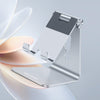

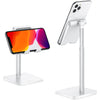
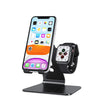
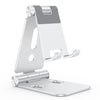

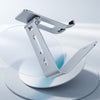

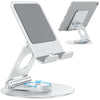
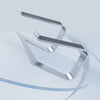
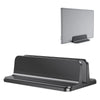
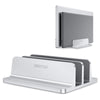
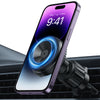
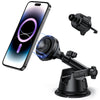
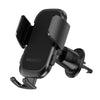

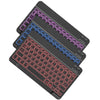

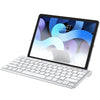
![[iOS System] Seamless KB066](http://omoton.com/cdn/shop/files/B00B24I4II-1_100x.jpg?v=1686815508)
![[Mac System] Seamless KB066](http://omoton.com/cdn/shop/files/B09899K4L6-1_c724630c-c160-4901-9900-f670acc91416_100x.jpg?v=1686732854)
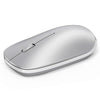
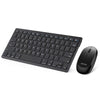
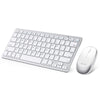
![[2 pcs] Full Protection A020-iPad Pro 11](http://omoton.com/cdn/shop/products/3a69674b6a96497b2ffd7f3025a80d58_e9954f3e-86f5-43e6-9a80-575bcfebd158_100x.jpg?v=1686381536)
![[2 pcs] Full Protection A017 - iPad 10.2 inch](http://omoton.com/cdn/shop/files/61tTSoyyuuL._AC_SL1500_100x.jpg?v=1686021560)
![[3 pcs] Rugged & Robust A013-iPhone 11/XR](http://omoton.com/cdn/shop/files/61po0_qv46L_100x.jpg?v=1686032850)
![[3 pcs] Rugged & Robust A013-iPhone 14](http://omoton.com/cdn/shop/files/16c0b02250912a03578c8b2af6825f11_100x.jpg?v=1686708163)
![[3 pcs] Rugged & Robust A036-iPhone 14 Pro](http://omoton.com/cdn/shop/files/1_2_100x.jpg?v=1686022078)
![[3 pcs] Rugged & Robust A013-iPhone 14 Pro Max](http://omoton.com/cdn/shop/files/1_2_2_100x.jpg?v=1686023071)
![[3 pcs] Rugged & Robust-iPhone 13](http://omoton.com/cdn/shop/files/71HO0AZn0BL_100x.jpg?v=1688522739)
![[3 pcs] Rugged & Robust-iPhone 13 Pro](http://omoton.com/cdn/shop/files/71pE0jfT24L._AC_SX679_100x.jpg?v=1688523892)
![[3 pcs] Rugged & Robust-iPhone 13 Pro Max](http://omoton.com/cdn/shop/files/71c1zssdVHL._AC_SX679_100x.jpg?v=1688527213)
![[3 pcs] Rugged & Robust A024-Samsung Galaxy A14](http://omoton.com/cdn/shop/files/1_2_68d89e60-61af-4cba-9867-9a91941aee01_100x.jpg?v=1686030778)
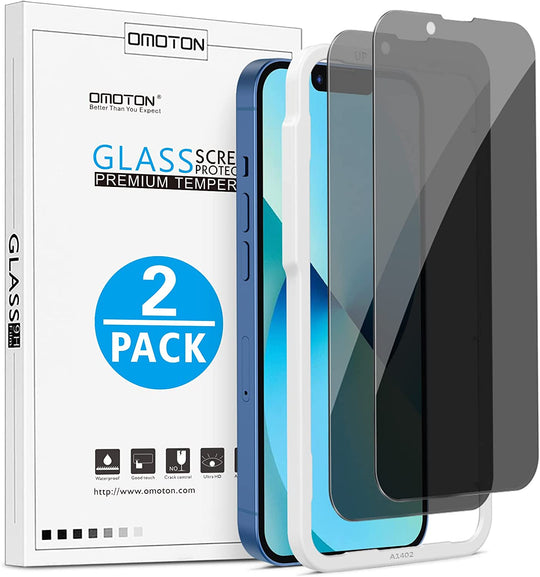

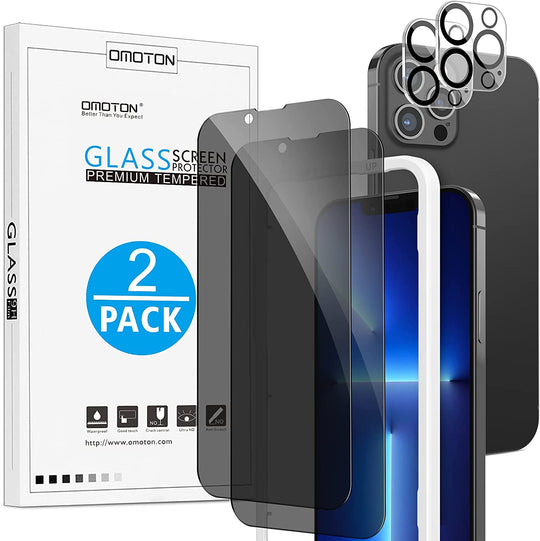
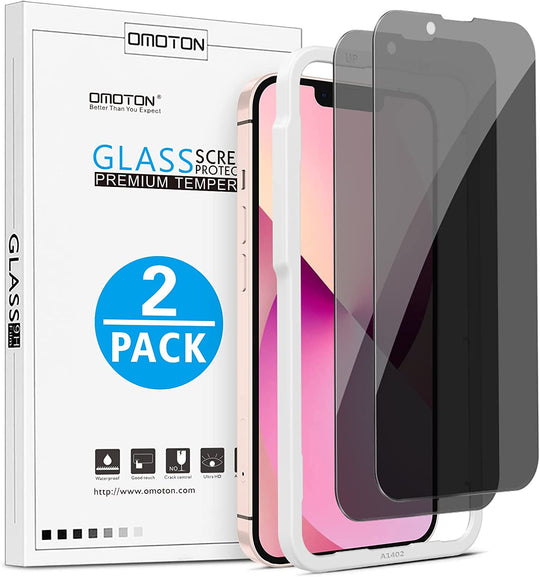









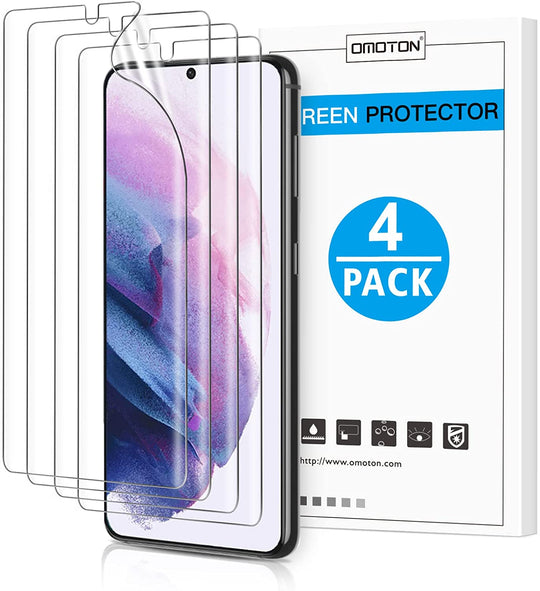


Excellent Comment
Renjith
Anyway your article is extremely helpful first understanding about different kinds of screen protectors.
Only thing is just stop mentioning your brand name in the middle of an article. It just destroys the flow of the reading. Other than this it awas a nice experience. Thanks for putting up such a nice work.
Anyway your article is extremely helpful first understanding about different kinds of screen protectors.
Only thing is just stop mentioning your brand name in the middle of an article. It just destroys the flow of the reading. Other than this it awas a nice experience. Thanks for putting up such a nice work.
Tasha Roome
Your article is extremely informative. Keep up the good work.
Your article is extremely informative. Keep up the good work.